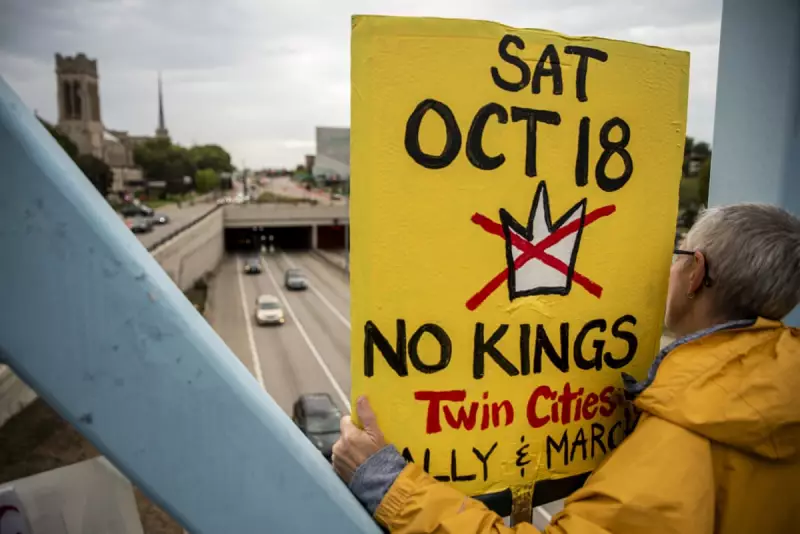
In an extraordinary display of public dissent, millions of Americans have taken to the streets in what organisers are calling the largest coordinated protests in modern US history. The wave of demonstrations comes amid growing concerns over former President Donald Trump's expanding executive authority and controversial legal manoeuvres.
A Nation Divided: The Scale of Dissent
From the bustling streets of New York to the sun-drenched avenues of Los Angeles, citizens gathered in unprecedented numbers bearing signs declaring "No Kings in America" and "Democracy Not Dynasty." The protests, remarkably peaceful yet powerfully vocal, represent a significant challenge to the current administration's governance style.
Organisers estimate that participation exceeded three million people across more than 150 cities, with particularly massive turnouts in:
- Washington DC, where crowds surrounded the White House
- Chicago, where protesters marched through the Loop district
- Philadelphia, where historical symbolism met modern political activism
- Seattle, where demonstrations continued late into the night
The Constitutional Crisis Deepens
At the heart of the protests lies a fundamental question about the limits of presidential power. Legal experts warn that recent actions by the Trump administration have created the most significant constitutional challenge in decades.
"We are witnessing a stress test of American democracy itself," explained constitutional law professor Eleanor Vance. "The system of checks and balances is being pushed to its absolute limits."
Legal Battles Intensify
The protests coincide with multiple high-stakes legal proceedings that could redefine the relationship between the executive branch and other government institutions. Key cases currently moving through the courts challenge:
- The extent of presidential immunity from prosecution
- The authority to deploy federal forces in states
- The limits of executive orders bypassing congressional approval
Voices from the Streets
Among the sea of protesters, stories of personal conviction and political awakening emerged. Sarah Jenkins, a teacher from Ohio who had never protested before, explained her motivation: "I never thought I'd see the day when I felt compelled to march. But this isn't about politics anymore - it's about preserving the America I want my children to inherit."
Retired marine colonel David Chen offered a military perspective: "I served to protect the Constitution, not a personality. When you see the foundations of our democracy being chipped away, silence is no longer an option."
Political Fallout and International Reaction
The scale of demonstrations has sent shockwaves through the political establishment, with reactions split sharply along partisan lines. Meanwhile, international observers have expressed growing concern about stability in the world's oldest continuous democracy.
As night fell across America, the protests showed little sign of diminishing. With legal battles continuing to unfold and public sentiment running high, the nation appears poised for what could become a defining moment in its political history.





